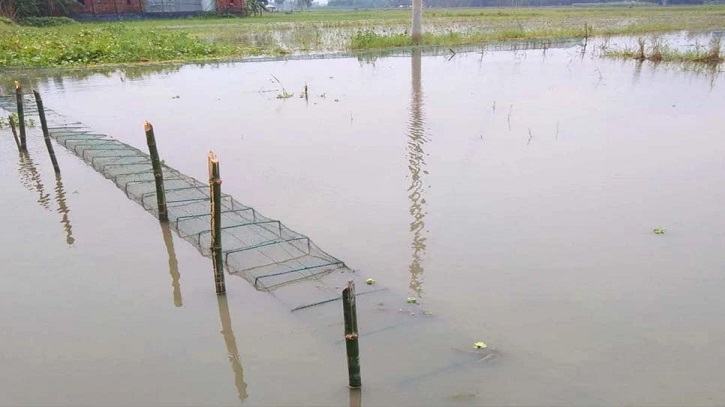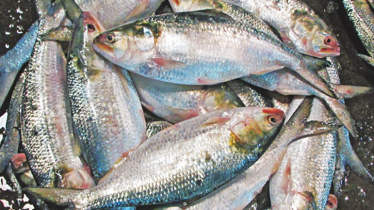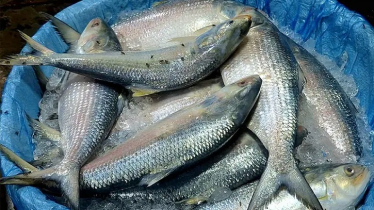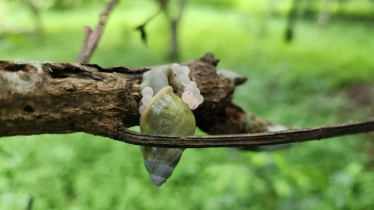
In Bogura, the widespread use of banned China Dhuwari fishing nets in canals, wetlands, and other water bodies is posing a serious threat to native freshwater fish species. These nets, used indiscriminately during the breeding season, trap egg-bearing female fish, severely impacting reproduction and endangering the survival of indigenous species.
Experts warn that aquatic biodiversity is also under grave threat. Bangladesh is home to 260 species of native freshwater fish, including 143 small species. Among them, 12 species are critically endangered, 28 endangered, and 14 vulnerable.
Once abundant in Bogura’s rivers, canals, and wetlands, native fish stocks have declined sharply due to climate change, waterbody encroachment, excessive pesticide use, habitat destruction, and now, the unchecked use of China Dhuwari nets.
Officials from the district fisheries department note that species such as mola, dhela, chela, punti, shing, magur, pabda, gulsha, kajoli, batashi, tengra, bacha, taki, chang, kakila, bota, bhangna, tatkini, bou-mach, chapila, baim, khalisha, koi, bele, chanda, and shrimp are under increasing threat.
In the Sarishabari, Sonatola, Dhunot, and Shibganj areas, use of these nets rises with monsoon flooding in rivers like the Bangali, Karatoa, Gangnai, and Nagar. Residents blame lax enforcement by the authorities for the escalating crisis. Without urgent measures, experts fear that native fish and other aquatic species could vanish entirely.
Local resident Konok Dev explained that these nets, made with fine thread attached to metal rings, trap not only fish but also snails, frogs, crabs, snakes, and eels, causing widespread ecological damage. In Shibganj’s rivers and canals, at least 30–40 such nets—each 50–60 meters long—are deployed daily. Although difficult to detect underwater, they can sometimes be identified in shallow waters by the stakes used to secure them.
RabiuI Islam Rabi, assistant teacher of social science at Abhirampur High School, warned that if the use of China Dhuwari nets is not stopped, biodiversity will collapse, forcing people to find alternative sources of nutrition to replace fish.





